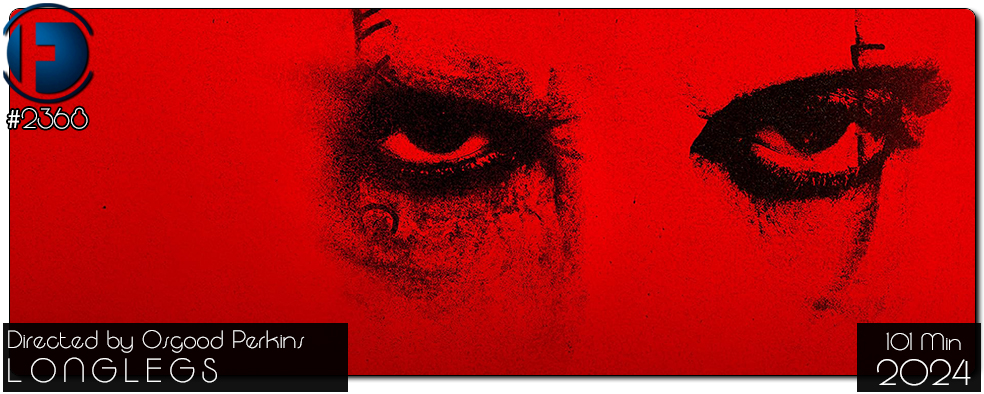Movie Review – Longlegs
Principal Cast : Maika Monroe, Nicolas Cage, Blair Underwood, Alicia Witt, Michelle Choi-Lee, Dakota Daulby, Kiernan Shipka, Maila Hoise, Jason Jay, Lisa Chandler, Ava Kelders, Carmel Amit.
Synopsis: In pursuit of a serial killer, an FBI agent uncovers a series of occult clues that she must solve to end his terrifying killing spree.
********
Mixing varied elements of Silence Of The Lambs with post-modern supernatural horror tropes a la Ari Aster, Osgood Perkins’ slow-burn white-knuckle thrill-ride is not for the faint of heart. A potent, claustrophobic subgenre mini-classic, in which Nic Cage delivers yet another stunning off-the-wall performance beneath layers of makeup, Longlegs heralds the mainstream arrival of one of Hollywood’s nepo-baby success stories in Perkins, son of Psycho star Anthony Perkins, and feels like a nightmare in which you’re slowly suffocating but can’t wake up in time to stop. Lead turns from Maika Monroe, Blair Underwood and Alicia Witt are also strong, but it’s the panache with which Perkins formulates the pervading dread of the film’s entire runtime – this grips from the very start and never relents, and by the end credits you’ll most likely find you’ve forgotten to breathe for ninety minutes.
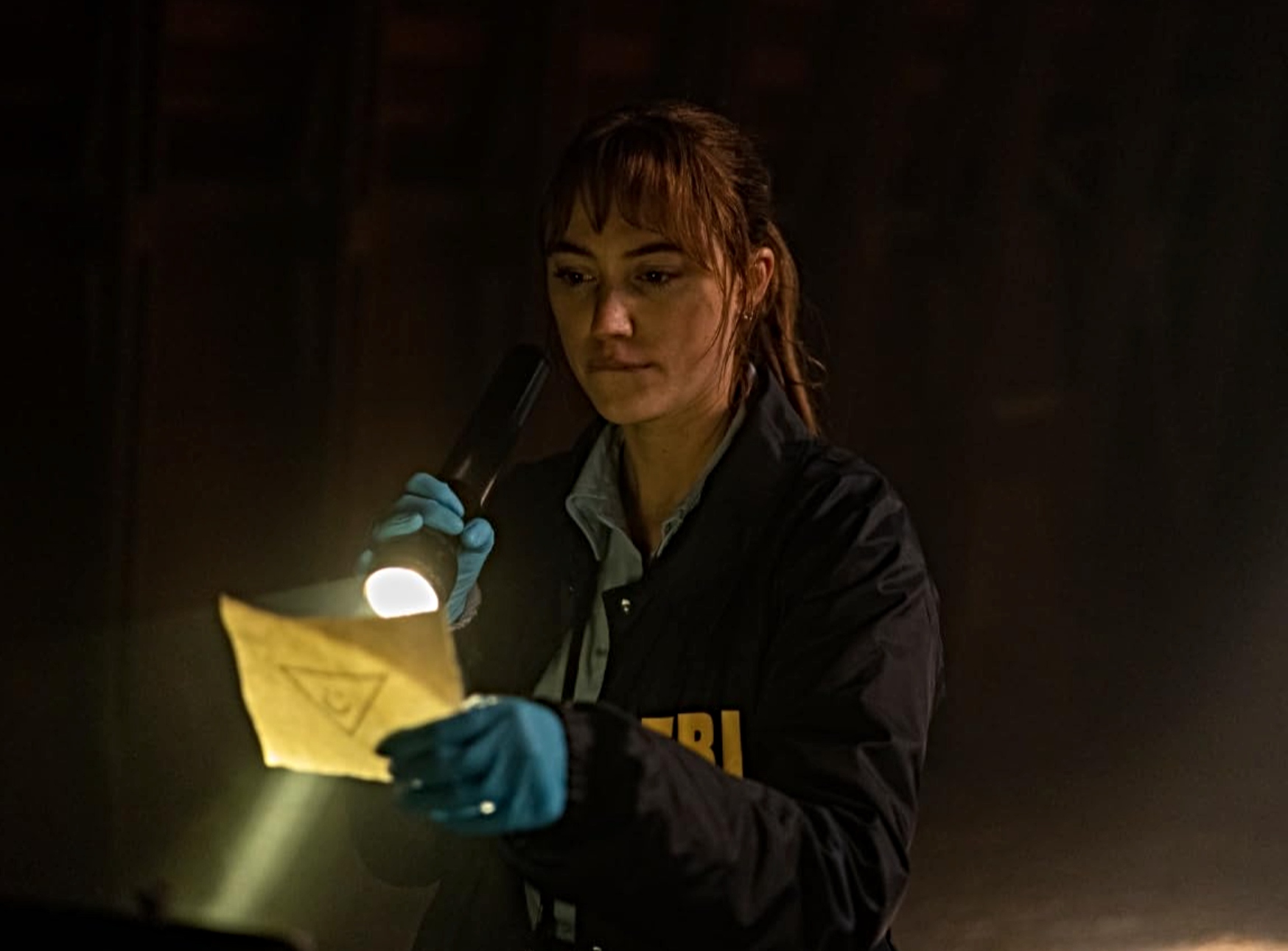
Somewhat psychic FBI agent Lee Harker (Monroe) is drawn into a macabre investigation when a series of gruesome murders points to a mysterious and elusive serial killer known only as Longlegs (Nic Cage). As Harker and her superior, FBI Agent Will Carter (Blair Underwood) delves deeper into the case, she uncovers disturbing connections to a dark and ancient power, blurring the lines between reality and the supernatural. The closer she gets to the truth about Longlegs, and the mystery surrounding the disconsolate mental state of her mother (Alicia Witt), the more Harker realises that Longlegs might not be entirely human, leading to a harrowing confrontation where survival means facing the most unimaginable of horrors.
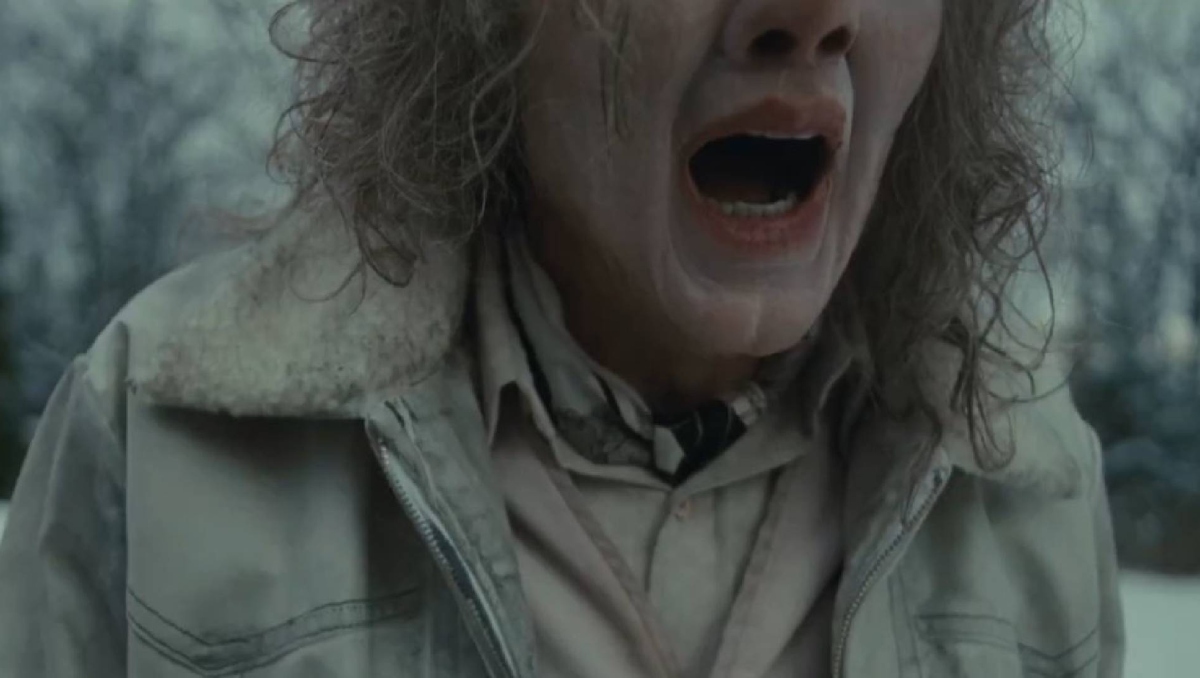
Having followed the career of It Follows’ breakout star Maika Monroe, and having suffered through the interminable wreckage of Independence Day: Resurgence, I was keen to see her return to her horror roots alongside an actor who continues to reinvent himself (and challenge both himself and his fans), Nicolas Cage, for Osgood Perkins’ Longlegs. Monroe is a solid actress when dealt the right material – hell, most actors are great when they’re given meaty chunks of character to immerse themselves in – and her career choices have been nothing short of phenomenal in stretching her as a performer; the likes of Hot Summer Nights, I’m Not Here, Greta, and recent drama-thriller Watcher have all given her plenty of mainstream exposure, although perhaps she’s not the household name I expected following David Robert Mitchell’s seminal sex-horror classic in 2014. Cage, for his part, has trumped all off-screen problems by continuing to challenge his own status quo as one of the most eccentric, quirky screen talents of our time, flitting between indie-darling fare such as Pig (a masterpiece) and Renfield as well as mainstream work in the Spider-Verse animated features, The Croods, and a standout comedy film alongside Pedro Pascal, The Unbearable Weight of Massive Talent. For nearly a decade he floundered amongst the direct-to-DVD slop of the 2010’s, until recently when he began accepting roles that stepped outside his comfort zone and well inside his zany, madcap wheelhouse.
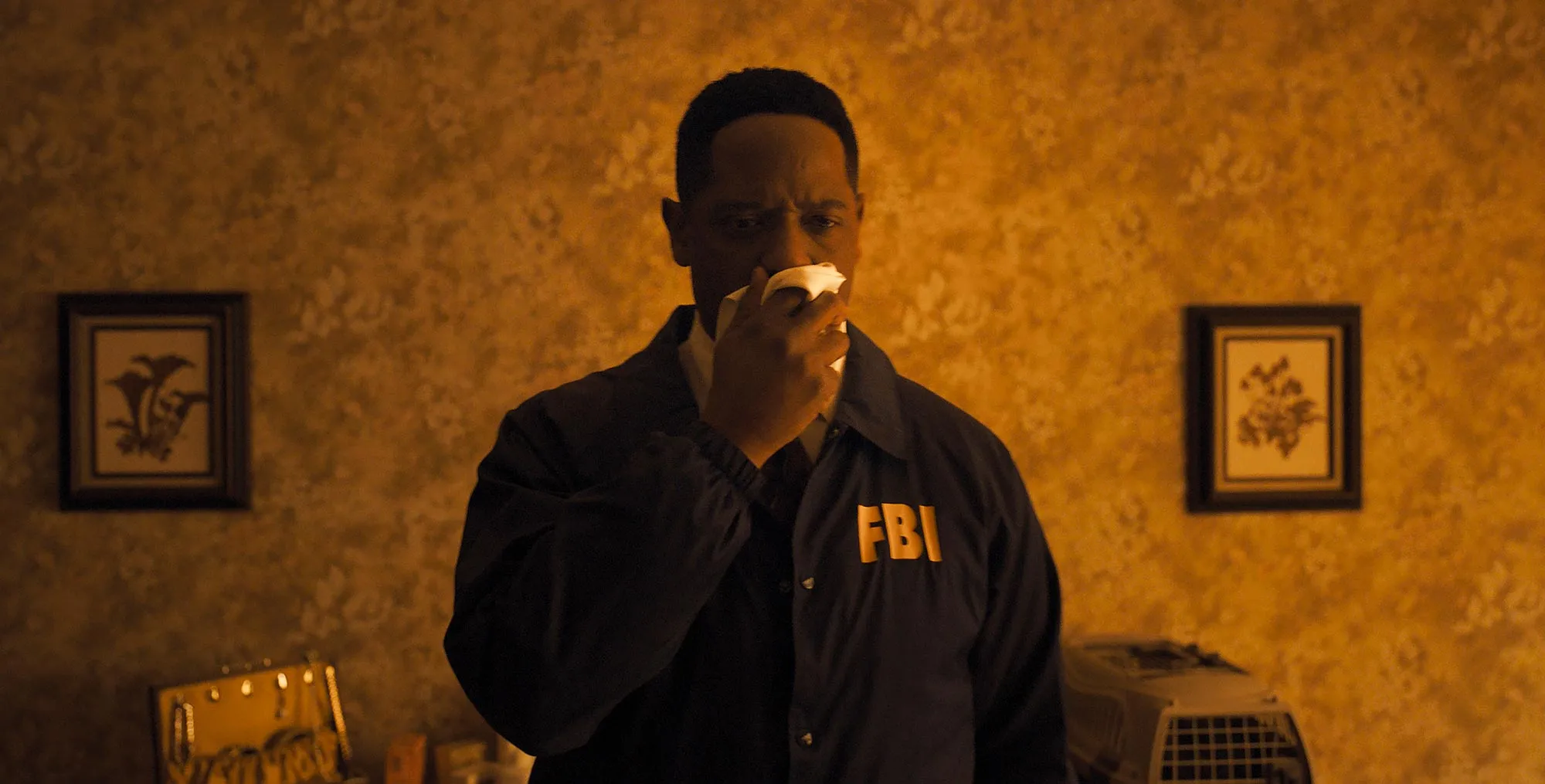
All this is a roundabout segue (and a very thin one at that) to Longlegs, shouldered by these two charismatic screen talents, and it’s remarkable just how effective the film is because of their respective powers as performers. Monroe’s turn as Lee Harker, an FBI Agent cut from different cloth to Silence of The Lamb’s Clarice Starling, is pitted against the psychological warfare established by Cage’s Longlegs, a proxy for Hannibal Lecter if we’re continuing this analogy. Cage gets a chance to really dig into creepy, nightmarish sinister work, with Longlegs’ bizarre look and demonic behaviour wringing every sweaty beat of terror from the viewer with an unhinged portrayal that’s unlike – and still very similar to – stuff we’ve seen from him before. Monroe’s quietly spoken Lee Harker evokes the Stoker-esque gothic horror undertones of dormant, omnipresent satanic evil, the film’s serial killer trope quickly descending into a nightmarish pastiche of a “the man downstairs” character Stephen King would be proud of, and one who’s in control of everything that’s happening. A series of brutal family killings being laid at the feet of Cage’s Longlegs is a malignant plot basis that elevates every shred of skin-prickling tension and beneath-the-surface horror, and Cage leaning into the Exorcist-style screamy-whisper role Perkins asks of him is a genre tour de force. It’s arguably Cage’s most mindboggling turn in quite some time, and I saw Mandy.
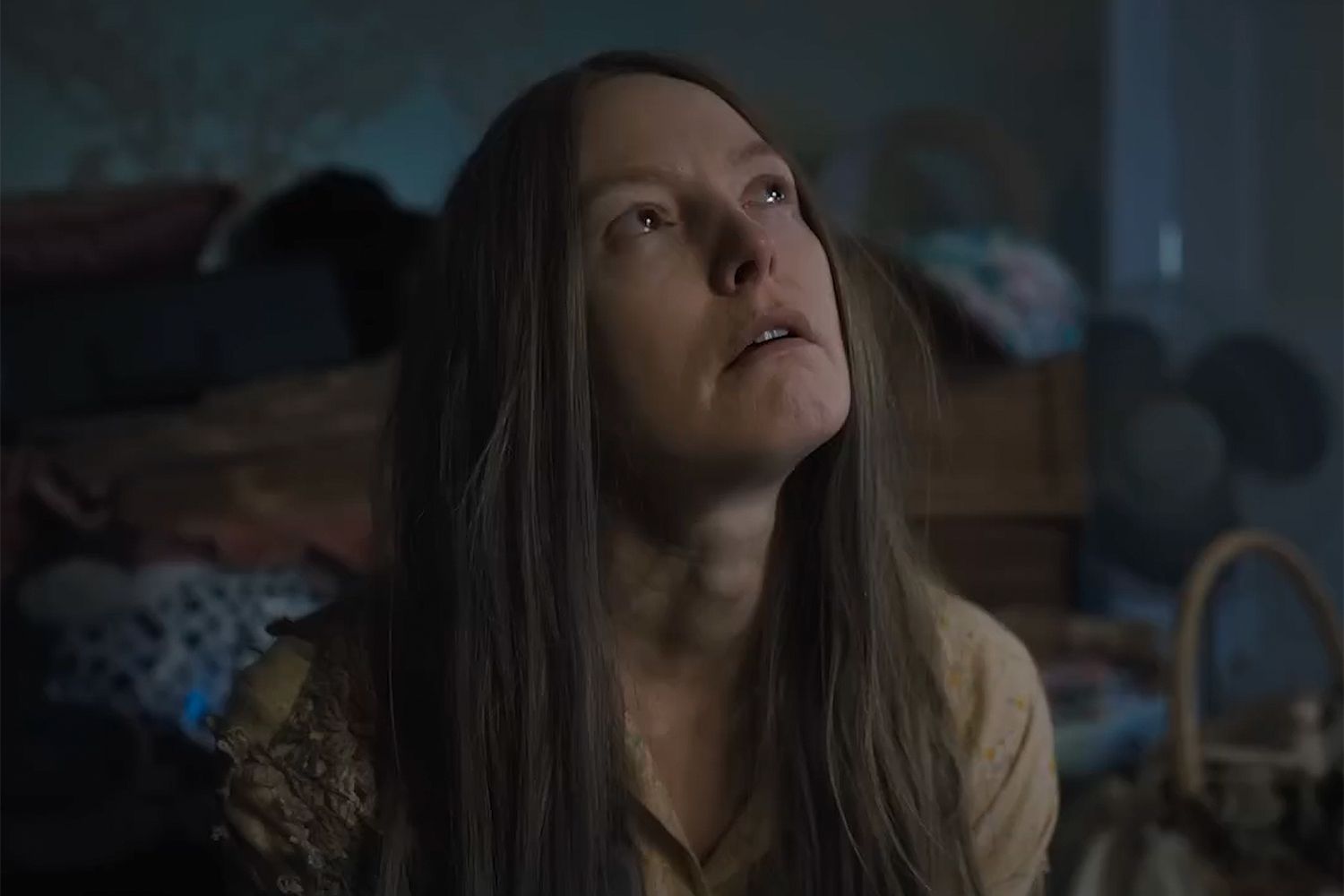
The strength of the film, in my opinion, is in the creepy, prickly visuals. The film’s brown and blue hues, of which I’m sure were suggestive of some subtext I was unable to determine, evokes invariably isolation and an uneven warmth, a sort-of embryonic safety that never quite offers enough, and it’s superbly realised. There’s some eerie framing of various shots, notably through early appearances of Cage’s Longlegs, that throw the viewer for a loop, very much echoing the kind of literary serial-killer horror of a Stephen King or Fincher’s Se7en. There’s a lot of Se7en in this film’s “hunt for a monster” plot device, in as much as the horror we think we see isn’t anywhere near as ghastly as the stuff we only envision for ourselves; there’s a few moments of bloody gore here but a surprising amount is left to the imagination, if not always just out of frame. Osgood also peppers in some demonic subliminal imagery periodically that also seeks to engage the primal underpinnings of our communal fears, a horned devil archetype lurking in the shadows and the edges of our vision throughout Longlegs’ descent into madness. A sublime sound design also accentuates the immediacy of the film’s overt horror elements, from Cage’s breathy, off-the-wall vocals to the creaking, groaning houses and floorboards, and syrupy sloppiness of the various body-horror aspects, not to mention the punctuated chest-thump of various gunshots, all of which provides a truly insidious aural template through which Osgood elevates his storyline. I found it thrilling and terrifying – these are the kinds of horror films I find really effective, moreso than bloody and splatter entries like Terrifier – and on the strength solely of the film’s tableau and aesthetic I can recommend it wholeheartedly.
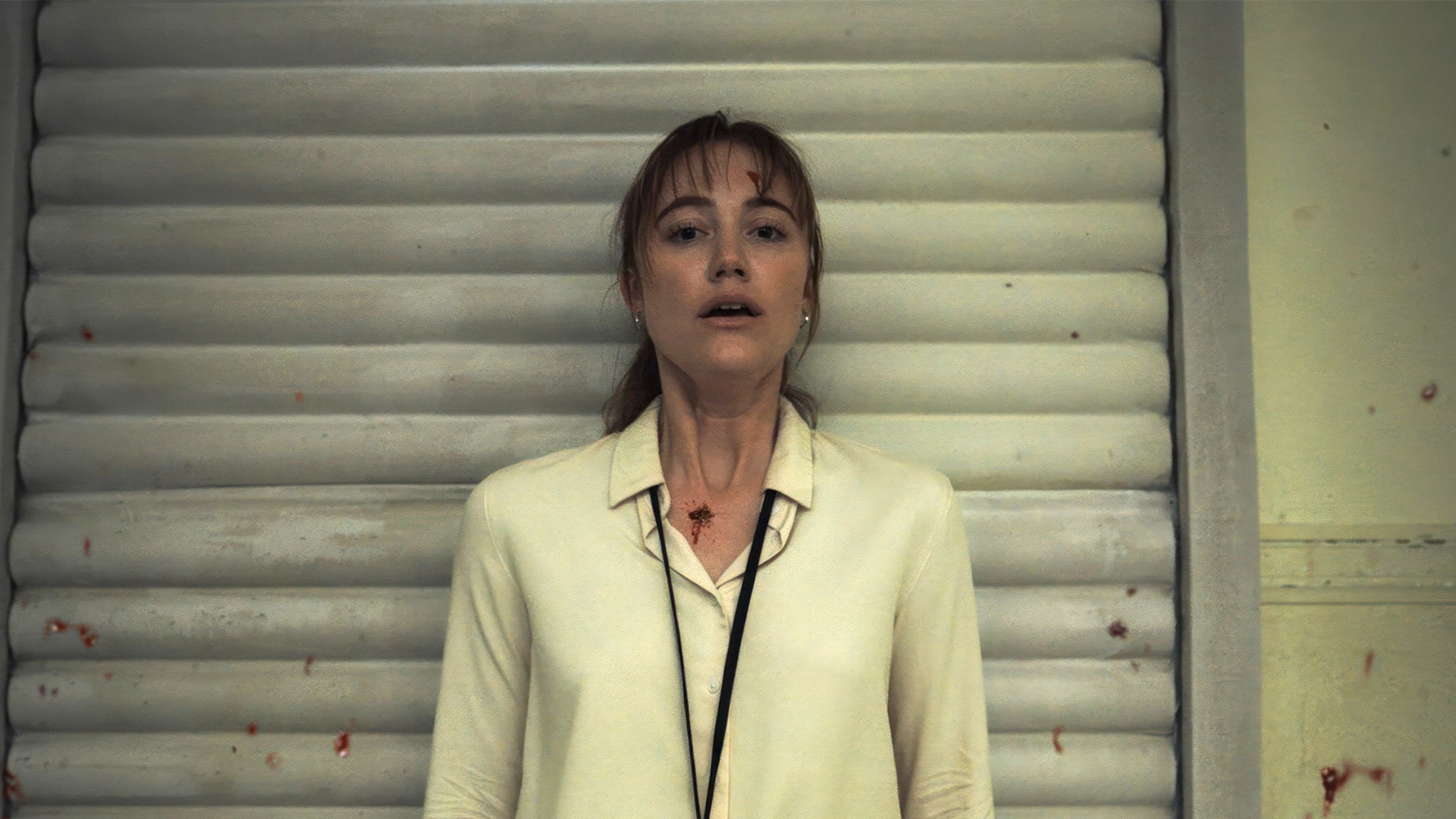
Oz Perkins has delivered a mini-classic in 2024. It’s easily one of the best horror films of the year – if not so far this decade – and it really affected me, so much so I’m thinking about it several day after seeing it. As a somewhat jaded horror fan this in itself takes some doing, so it’s not without a sense of surprise that I suggest the film is an unadulterated success for the genre and a propulsive catapult to Perkins’ star rising in the mainstream conversation. Horror has had a minor renaissance the last few years with some stellar projects coming down the pipe that affect the viewer in any number of ways. If we’re criticising Longlegs at all it’s that I think it’s perhaps a touch esoteric for more casual fans – it’s a slow-burn for the opening act, that’s for sure – but I stand by my assertion that it’ll be in the top ten films of the year by the time December rolls around. As solid and profoundly affecting subgenre film as there is today.

